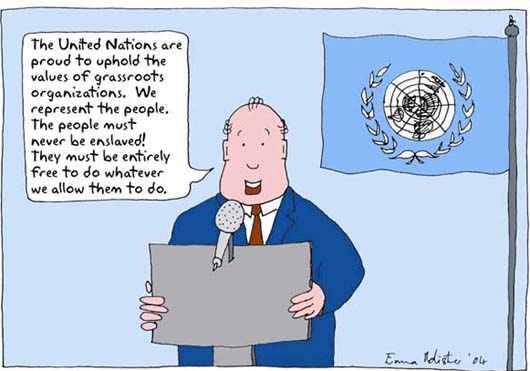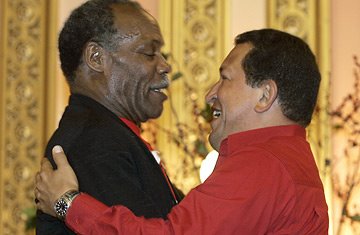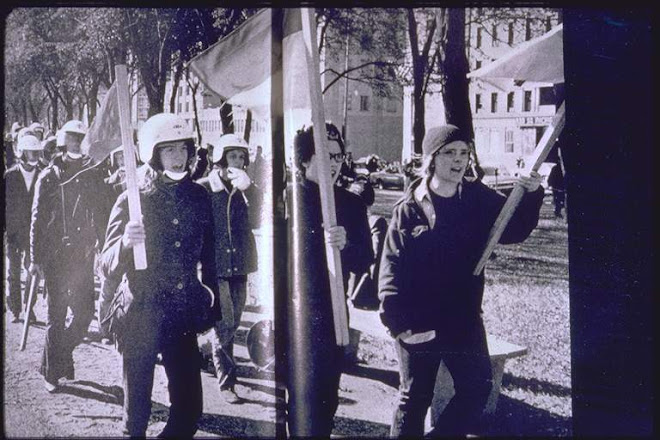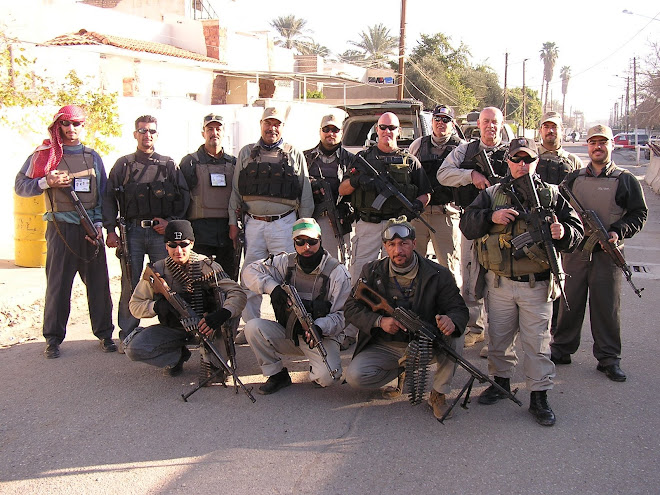After substitue teaching in 38 schools over a 4 1/2 month period in Connecticut, I quit. I had taught pre-K, grammar, middle school, high school, Job Corp, magnet schools, alternative schools, English as a Second Language, and special education classes.
The experience gave me a unique perspective - an inside view of the public school system and not connected to any school district or to the oppressive teacher’s union. I found it a dysfunctional system that dedicated teachers, new buildings, massive budgets, and busing can’t save. In this era of mega budgets that taxpayers are expected to accept without whining, it surprised me to learn that teachers spend money out of their own pockets for their classrooms or on individual students.
It seems that every manner of new program is employed and discarded and replaced by an improved program. Whatever has been tried fails, so they move to a different solution. There’s always a new plan. In one city, for instance, reading and math programs together with their textbooks and ‘supplemental’ material are changed almost with the seasons. The costs associated with inconsistent curriculum planning are both material and human. What are all of these highly paid ‘administrators’ doing to earn their wages?
Kids are given laptops, counseling, in-classroom support and lots of face time but fall short anyway. I’ve been in some classrooms that had three teachers and two para-professionals for 16 kids. How much of this expensive support do you need?
Ultimately, school budgets are approved by taxpayers…or not: With each passing generation Americans seem increasingly distanced from their own past. School critics, with justification, often lay responsibility for not teaching what it means to be an American or that our citizenship, unique in the world, is disappearing in the collective hive.
Our form of citizenship identifies us as sovereign: citizens who are above the government but not above the law. Such a citizenry could say “NO” to government, whether on policy or budget matters (the two are often linked) and expect the government, whom we elect and appoint, to conform to our wishes and not the other way around. But to teach that concept, which is the foundation of American liberty, is incompatible with and contradicts current schema of public education which is to reengineer American society away from individualism into one of groupthink.
In 1993, I formed the a Parent Commission in my home town. We were an informed and influential group or parents – and a few teachers – who exerted pressure where it was needed: The school superintendent’s contract was not renewed and one principal got his walking papers. We warned parents that a new system of education was being placed in our schools, one that strangely favored emotions over academics and relationships over fact-based learning. We got rid of the superintendent but the system stayed.
That system, schemata that teaches children to accept change and to welcome it without question, has been in place now for 14 years. This generation just elected a president.
The academic results: our kids rank lower in academic comparisons to many other industrialized nations (from 1st to 14th). We tried to warn our neighbors that our kids were getting, not ‘school,’ but a management system based on international educational standards that use financial and other incentives to prepare students for “Mastery Learning” and to become multicultural persons open to all beliefs and lifestyles but where accuracy, literacy, and our own history fade in this process of standardizing ‘human capital’ - your kids.
One third of Hartford’s kids don’t graduate. A significant number of the girls leave pregnant, without a husband or man around to help with the new baby. And the poverty and crime cycle is held up to society as a threat: You’d better fix this or else you’ll pay me welfare for the next 30 years and you might be my next crime victim. Such reasoning eliminates the reasonable expectation of society for personal responsibility. To accept it is an admission of failure and impotence.
It isn’t the school’s responsibility to fix everything that’s wrong in a student’s life and it’s a cop-out to advocate that every problem facing youth, wherever they live, has a school-based solution. The disaster in education begins inside the home where it fails because parents will not hold their kids responsible for their own behavior or for their performance in the classroom.
Forty years ago, America was number one in the world for producing high school graduates. Today we are eighteenth. Between 1994 and 2005, math and reading skills declined sharply.
Fifty years ago, hard work and education were considered the only practical means to achievement. Today, many entering the workforce believe that achievement is a matter of, not earned merit, but luck and who you know. When hard work and education is not considered practical, luck and who you know may indeed determine what you get and when you don’t get what you want you can always blame somebody in today’s America.
Measuring achievement disparities between whites and minorities in Connecticut has produced alarming observations: We are now 50th out of the 50 states in producing black and Hispanic high school graduates on a per capita ratio in comparison to whites. Only 20% of minorities in Connecticut graduate with the proficiencies necessary to go to college and one must ask, is this racial or cultural phenomenon? To ask that question is to open one to criticism. To not ask that question, and expect an answer, is irresponsible.
Hartford, Connecticut, which is more than 90% ‘minority,’ has a proficiency level of under 50% in measurements of math performance when the state average is 80%. What do teachers do? The kids don’t have the skills so they begin to teach to the test, the CMT’s to be exact. But testing is only a measurement of what is deficient. When your strategy is to teach to the test, an effort that takes from September to March in Connecticut, you begin to measure only what is left to learn rather than prepare students to expect they will be required to demonstrate how much they know.
In order to make these assessments teachers spend much of their time data gathering instead of teaching. In the end, they are often forced to make loaded assessments so the schools will pass even if the kids cannot.
Proficiency, a measure of competence, is retreating. Standards that were expected to be attained not long ago are only hoped for goals today. 50% of American freshmen entering college need to take remedial courses in math and English just to be able to perform at the university level. Employers face the same issue when they hire college graduates because new hires can’t do basic math, can’t spell, and can’t write competently. Employers spend enormous amounts of money on curative programs to raise employees’ basic skills.
Of Connecticut eighth graders, only 35% are proficient at math, 37% are proficient in reading, and 33% are proficient in science. When they get to high school these students can’t do the work and they slow everyone else down.
In comparisons between Connecticut cities, which are overwhelmingly minority, and the suburbs, which are overwhelmingly white, graduation ratios are profoundly clear. The cities on average graduate about 20% of their freshmen and the suburbs graduate about 80%.
Forty years ago, Connecticut had one of the highest technologically proficient workforces in the world. As that workforce ages and begins natural attrition, which is right now, there aren’t enough graduates with the competencies needed to replace them.
The Quiet and Orderly Classroom.
The first order of government is to provide for the public safety. In the schools, it is the administration that is the government. The breakdown in public educations’ approach to classroom discipline is quite simple and can be summed up in one word: abandonment.
Overpaid administrators in general fail to address discipline issues, just ask the teachers who shuffle from class to class the petty tyrants that plague them all day long because ‘the office’ won’t take them and you can’t any longer get rid of them through suspensions or expulsions.
Dealing with discipline is expensive. Not dealing with discipline issues is more expensive. Not dealing with discipline issues is also dangerous because teachers are placed in untenable and sometimes vulnerable positions: The kids know that there are no real consequences to what they do and as a result, some kids, often the same ones, disrupt classrooms beyond recovery. Everyone’s academic performance suffers when refractory and antisocial delinquents are allowed to steal class time with impunity.
When kids have never had serious limitations placed upon their behavior they learn that they can live with the consequences. Worse, they learn that there are no consequences. Teachers cannot and should not be expected to deal with these problems and students who want to learn are robbed, literally, of opportunity as much by school policies as by delinquency in the classroom.
Retired or moonlighting police and corrections officers patrol hallways with uniformed security guards that carry walkie-talkies. It is an act of surrender to accept this chaos as it is practiced in too many schools. Yes, students have a choice: sit down, shut, up, pay attention, and do the work. Or get out.
I am well experienced dealing with diverse cultures and a wide variety of human conditions. At one time, I spoke ten languages, two dialects, and of the ten languages four are aboriginal languages learned from native speakers on four continents. I taught ESL at Boston University. While I was a substitute teacher I overheard many conversations between students who were unaware that I spoke Spanish.
In Iraq in 2004-2005, I taught tactics and some English to Iraqi’s that served on my counter terrorist teams. Part of my training and experience is in the area of threat assessment. I believe that there is an underclass in the school systems that pose a threat to American society. This underclass will augment in the coming years as greater and greater numbers refuse to avail themselves of educational opportunities.
Personal experiences.
I arrived one day at a middle school to begin a substitute assignment in an 8th grade class. As I walked to my classroom two female teachers were in the hallway yelling at a kid to stop running and return to where they were standing. “F_ _ _ you,” said the runner, and she disappeared around the corner at the end of the hallway. This student was known to the teachers. I asked them if they needed any help and they meekly replied, “No, this is normal around here.”
The students in my classroom - a ‘bridge class’ of mostly Spanish to English speakers - were completely out of control when I walked in. A para-professional in the room was perfectly at ease with the pandemonium, cheerful, buoyant, and smiling even as she pointed to the only four students who were doing the assignment she handed out. The others, in a class of more than twenty, were shouting, wandering around, chatting, and some were mock-fighting. I was told by this paraprofessional that all was well, this class was just, “noisy.”
The kids who were sitting quietly and working seemed bewildered. I asked them if they thought the room was noisy and one said, through a smile, “It’s always like this.” I asked her if she wished it were quieter. She looked at me as though I suggested I could part the ocean. “Okay, Mister, if you can do it,” she said in a thick Spanish accent. And then it began.
I threw two students out immediately – something they did not expect. One refused to leave. I called the office to have someone come and remove him. I could go on with a litany of things that happened next, but why bother - use your imagination.
As I lined up my class to leave the cafeteria after lunch, a student nearly knocked me over by slamming into me from behind saying he “just bumped into me” and told me I was standing in the wrong place, anyway. He disappeared before I could get another teacher to watch my kids while I took him to the office.
While in the lunch line, a girl told a male teacher who was standing next to me that if he did or did not do something that she would have to ‘smack him.’ He politely told her, “Now, I know you are just kidding, but you really can’t say those things and blah, blah, blah…” That was a pretty weak response to the most egregious disrespect you can give an authority figure…the implied threat of physical violence. I met three male teachers at that school each of whom seemed to have the same medical condition: no backbone.
As we were lining up for lunch, a girl tried to embrace me in what I perceived as an attempt to compromise my reputation. The implications of such behavior, if it had culminated in any sort of contact which it did not – are nightmarish.
Other male students hugged female teachers and some kids kept trying to shake my hand and ‘high five’ me. That kind of ‘familiarity’ between staff and students sends the wrong message – discipline erodes and it makes some students feel that they have something that others, who do not seek that kind of ‘friendly’ relationship, do not have.
After lunchtime, and in the hallway as we were returning to the classroom, one of my students mockingly wriggled her hands into my face and laughed. The Vice Principal, a man obviously well known to these students, was standing right there next to me.
This girl must have known she could get away with anything. He didn’t say anything until I made her get out of the line and tried to send her to the office. I asked him if he knew where the office was…he only then identified himself as the vice-principal and suggested to this girl that she “knows that’s not nice and what do you say to this man…”
I asked him, “Who did you say you are?” and he told me again. I said, “I am the Vice Principal.” “OK,” I said, “Then you take her to the office because I don’t want her back in my classroom until she makes a trip to the office.”
He then suggested to me, in the hallway and within earshot of everyone, “Wait a minute - I think you have got the wrong idea of what we are trying to do here. These are just children and the kids are the reason we are all here. You need to take your edge off.”
The kids just smiled. They had won. At that point I said to him, “You know, I do not need to be here. I feel that I am at risk here and I am leaving.” I asked him to escort me to the office.” I had been there less than 2 hours.
I felt very much at risk in this environment. When the one student blindsided me and nearly knocked me off my feet it was an act of physical aggression. The attempt at physical contact by the girl was, I felt, a deliberate device employed to compromise me.
The administration was completely under water, drowning in a sea of its own making and taking the teaching staff with it. The children cannot benefit from such a lack of management.
Notwithstanding all of this, Mr. Liam O’Reilly was boastful of his school, “We have a better attendance record here than they do in Avon because, for many of our kids, we are a refuge from what they find at home – if they have a home.”
That’s sad, but you don’t have to run an asylum while you are providing asylum to some kids who may be at risk and schooling – an education – to everyone else who shows up thinking that an education is what they’ll get when they cross the threshold.
Somewhere between a Dickensian nightmare and Star Trek lies the answer to teaching in the 21st Century. After the experience at that Middle School it seems that the best they are trying for is to attain the beautiful hell.
Showing posts with label Schools. Show all posts
Showing posts with label Schools. Show all posts
Friday, September 25, 2009
Subscribe to:
Posts (Atom)




















































